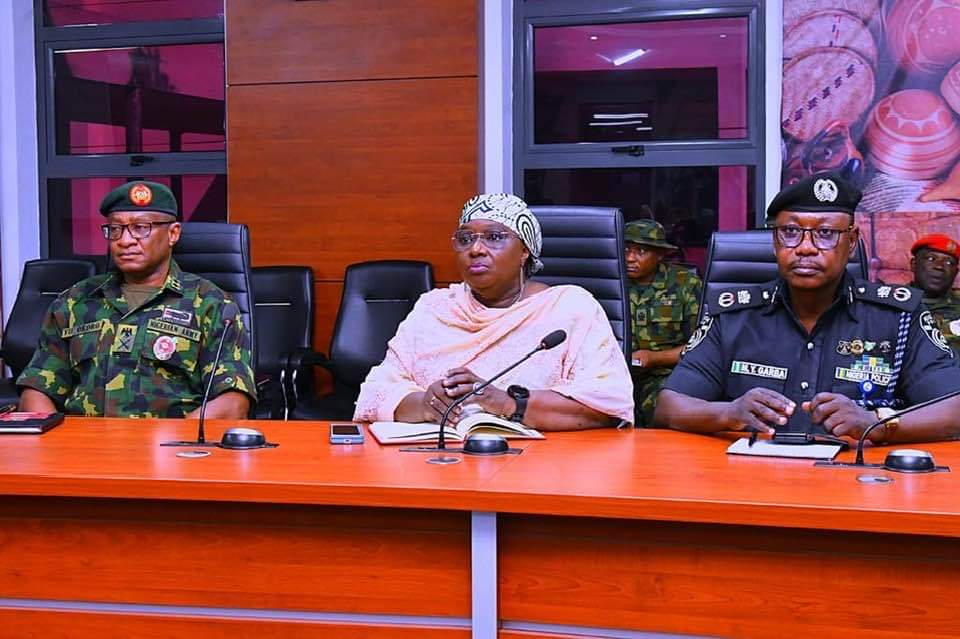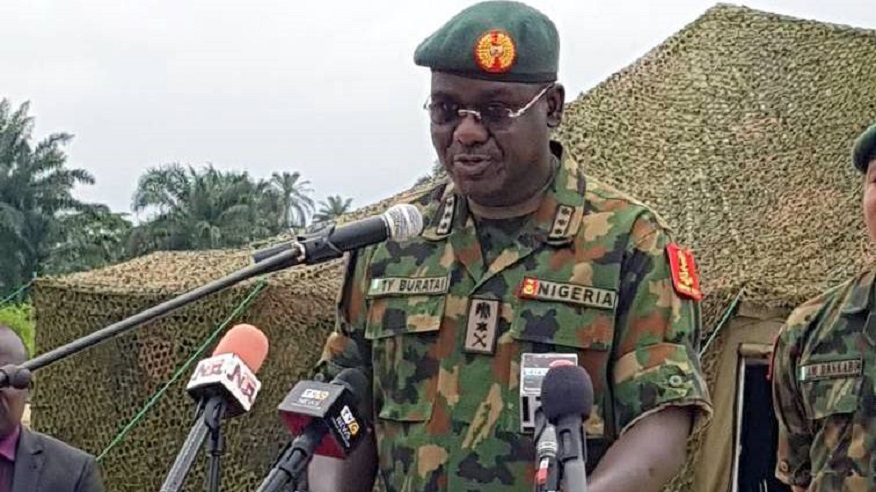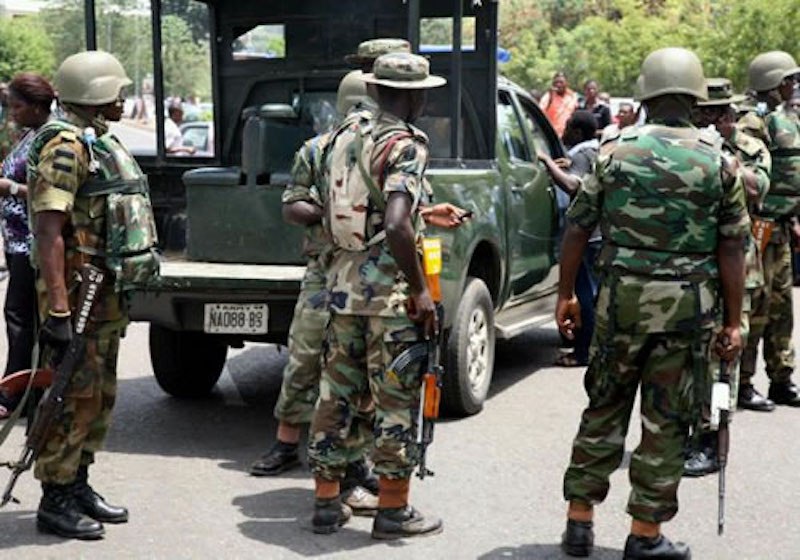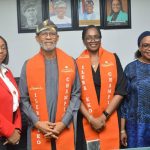Feature/OPED
The Nigerian Army, A Journey of Great Strides in Eyes of Observers
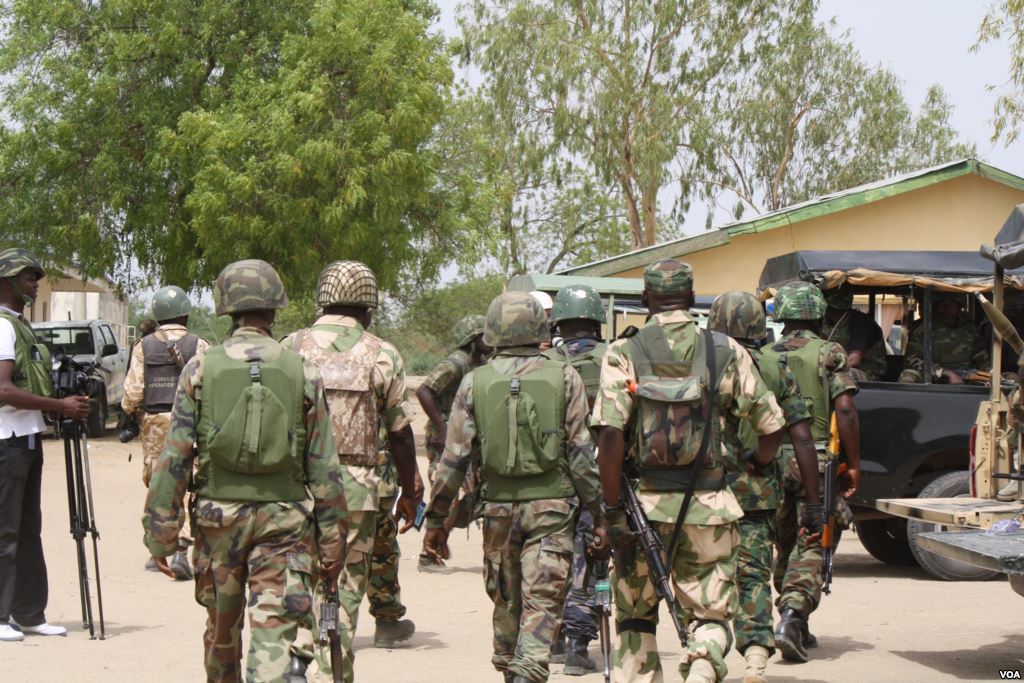
By Odeyemi Oladimeji
Celebrating our Gallant Soldiers — While we all are asleep, these Heroes are Awake, making sure we all sleep very soundly.
A critical look at the Nigerian Army and the war against Terror
Many will undoubtedly recall that the Nigerian president, Muhammadu Buhari, upon inauguration, made it clear where his priorities lie — Winning the war against terror and returning the Nigerian Military to the very positive place of total professionalism. That was how it all started from the 29th of May 2015.
Hitherto and before this present administration took over in 2015, of a major hindrance to winning the war against Terror was the very disturbing reports of army mutiny, Indiscipline, various cases of violations of the codes of war.
Such a destabilizing and debilitating situation was what the new administration and the new military heads inherited… And there was a war on Terror that was very far from being won.
Professionalism and Ethics in the Army
Professions create their own standards of performance and codes of ethics to maintain their effectiveness…
And the Nigerian Army is not left out in this venture.
In practice, and in context, this means that not only must Soldiers maintain the Army’s effectiveness, it must do so within the law, and the standards and moral code that make up the professional military ethics…. And in a situation that the Army, prior to May 2015, had been accused of many things, including Human Rights violations, it was a near chaotic situation that was met.
Ethical Contrasts
There are stark contrasts between military ethics and those of other professions, however. For example, whereas conventional ethics may say, “First, do no harm to civilians,” but in an unconventional war in which there are no standard armies but guerrilla-like Terrorists who mingle freely with civilians and wear no uniforms, keeping to professional military ethics become very difficult and will encompass, training and retraining of the army personnel and soldiers to be compliant still with the required ethics of war.
It was therefore a very serious matter for the post-May 2015 Nigerian Army to immediately begin the process that have come to be seen as one of the most important factors, leading to the huge successes recorded so far in the war Against Terror.
Choosing The battles in a War
A battle is a combat in warfare between two or more armed forces, or combatants.
A war sometimes consists of many battles.
Battles generally are well defined in duration, area, and force commitment.
A battle with only limited engagement between the forces and without decisive results is sometimes called a skirmish…
And there lies the difference in this war against Terror in which the battles were very many and diverse.
First and foremost, there was the battle within, in which the soldiers themselves were demoralized — Weapons were in short supply and reinforcements too long on coming. The anger was steadily building and ethics became a huge casualty.
Wars and military campaigns are guided by strategy, whereas battles take place on a level of planning and execution known as operational mobility… It was therefore a different kind of battle that the army now had to face when, these very strategies of the army gets leaked to the enemy as soon as they were made and mobility made redundant as the location of the Nigerian troops were frequently revealed to the enemy.
Any War at all, is fighting and operates in a peculiar element of danger…But not when there were leaks in the lines of command and sabotage among the ranks..!
War is served by many activities quite different from mere conjectures, so that innocent lives and lives of troops will not be lost.
The task therefore was to Retool the Army and rework it from the way of Arbitrariness, all of which concern the maintenance of the fighting forces.
These preparatory activities were quickly incorporated and included into the Army, Post-May 2015.
The meaning of the Training and the Retraining earlier mentioned is this.
The new Army leadership under , Lieutenant General Tukur Yusufu Buratai clearly understands, The Art-of-Unconventional-war, the actual conduct of this war, because they immediately became concerned with the creation, training, and maintenance of the fighting forces….
The implications of having a new leadership and the rejuvenation of the Army in handling this war on Terror, properly, in the right manner, has by extension brought along with it the use of modern civilian compliant means, by which less and less reports of human rights violations and condemnation by international human rights observers, became considerably, reduced.
The good things about these new models is that, once they have been developed for the purposes of an unconventional war, and they are seen to have succeeded, a new Vista is opened in the annals of warfare in which future engagements can be based.
The Victories of the Nigerian Army over Terror.
The Nigerian Army has recorded a string of victories against the Terrorists as a direct result of the redirection, retraining and repositioning that have happened in the past 30 months…!
In recent times due to efforts being boosted by support from President Buhari
A concerted push by the rejuvenated Nigeria’s military, has regained considerable ground in the fight against the Boko Haram Terror Group.
As at this very day, the Nigerian Army has repelled Boko Haram from all local government districts in the Northeast….
What remains are a few skirmishes, ambushes and isolated suicide bomb attacks, aimed at soft targets and not at a whole local governments, districts, villages, towns and cities.
And, as they inch closer to total victory, the military men and officers fighting the war against the Boko Haram sect in the Northeast are in high spirit!
A few weeks ago the Nigerian Army killed about 15 Boko Haram terrorists in Gwoza, Borno state, and the people, took to the street to celebrate the military victory over the insurgency.
The Nigerian troops attached to “Operation LAFIYA DOLE” under the ongoing Operation Deep Punch in the North-east region have cleared all the Boko Haram Terrorists’ camps in various confrontations in the in the past 30 months whilst suffering minimal casualties in the process, capturing high calibre arms and ammunition, particularly in the Lake Chad region.
The Terrorists, have been cleared out, from their hideouts in Metele village, Tumbun Gini and Tumbun Ndjamena in Borno State.
During the clearance operations, Boko Haram terrorists abandoned the area in disarray, leaving behind livestock, large quantity of foodstuff, motorcycles and donkeys.
Also in Metele, and other place, the terrorists have been completely destroyed and their gun trucks and and other equipment, captured.
The Intelligence War on Terror.
The Gallant Nigerian troops also have made many discoveries of Terrorists’ logistics base at Tumbu Ndjamena which held stocks of fish, foodstuffs, fuel and motorcycles. All these items were promptly destroyed.
In all of these Intelligence work truly paid off as information gathering and effective civilian collaboration and handling have led the army to many of these victories… Sadly, some Nigerian troops paid the supreme price for securing the great peace and relief we all are enjoying today. Specifically, the high spirit among the troops that continues to define the cohesion and camaraderie that have led to these strings of successes.
The Human Rights Abuse allegation against the Nigerian Army.
Despite these strings of successes and the high morale, professionalism and ethics, restored into the Nigerian Army, there were not to be unexpectedly, a few allegations of human rights abuses against the Nigerian Army in her conduct of war against Terror.
And a responsive government of President Muhammadu Buhari rose to the task by the then Acting President, Prof. Yemi Osinbajo, releasing a statement to the effect that it is the responsibility of the Federal Government and the Armed Forces to ensure that the military conform with the international best practices on human issues.
Vice president Yemi Osinbajo as the Acting President then, stated this while inaugurating a nine-man presidential panel to review allegations of human right abuses by the military charged the panel to find out whether they carried out their duty diligently, impartially and with all sense of professionalism, in August of 2017.
He said, “It is the responsibility of the armed forces and those of us in government to ensure that we interrogate our own activities and ensure that those activities meet up to human rights norms and basic rules of decency observed across the world.”
The panel was given the mandate to review compliance of Armed Forces with human rights obligations and rules of engagement.
You may recall that in June, 2015, President Muhammadu Buhari directed the military to conduct an internal inquiry into allegations of rights abuses by its personnel.
The then Acting President also praised the Nigerian military saying “it is also a well – known fact that the conduct of the country’s defence and security forces during insurgency in the North East and militancy in the Niger Delta has in recent times attracted significant commendations.”
The members of the Panel were Hon. Justice Biobele Geogrewill who is appointed to serve as Chairman Maj. Gen. Patrick Akem, Olawale Fapohunda, Mrs. Hauwa, Jibrin Ibrahim, Mr. Abba A. Ibrahim, Mrs Ifeoma Nwakama, Dr. Fatima Alkali, Counsel to the Panel, while Mr. S. Halliru is the Secretary (OSGF)
Responding on behalf of other members of the panel the Chairman, Justice Biobele Georgewill assured they will put in their best in order to uphold the confidence reposed on them by the government.
The panel sat in the geopolitical zones and cases even as far back as 2007 were brought to the fore.
The one good and interesting thing is the openness under which the whole exercise was conducted.
No one was barred, including notable human rights lawyers were also made submissions.
Boko Haram suspects were also allowed to make their inputs, that altogether, a very thorough job was done by the panel on the laudable platform of determining the credible claims from the spurious ones… The task was completed without a hitch with no glitch in November of 2017.
Though the report is yet to be released, the report citing Army/Nigerian relations in the last two years will no doubt be favourable.
Improved Army/Civilian Relations.
It is pertinent to make a reference to the period of Nigeria’s independence to date, in determining how far the nation has gotten with managing the Military/Army/Civilian relations.
After independence, the Nigerian Military, especially the Army, gave a good account of itself by rescuing the country from the precipice. And this happened not just once but several times because we had internal security problems in Nigeria, some of which are as a result of the deficiencies of other security agencies in the country. So, it has always been the Nigerian military that rises to the occasion. We must give it to them. They did a lot during the Civil War; we should commend them for that. Again we had situations of insurgency and they have done wonderfully well.
However, the situation started to change, when the military became active in politics….
Military involvement in politics has somewhat since then, made them antagonistic to the civil population.
This perception has waned only a little since the beginning of the 4th Republic in 1999.
In recent years, the Army/Civilian relations has been somewhat low-keyed, especially during the years the Boko Haram Terror held sway.
Undoubtedly also, the clear and detailed army victories against Terror have brought a new resurgence in the otherwise low-tide of checkered relations in which the people’s confidence and empathy have started to rise again.
Nigerians now celebrate great victories and also deeply mourn their fallen heroes wherever and whenever our Gallant Soldiers pay the Supreme price of service to fatherland with their lives.
And lately, we are seeing a lot of modest changes within the military from 2015 to date.
They have done a lot to improve the Army/Civilian relations to ensure that their professional calling is done within the ambit of the law, with respect to human rights, due process and professionalism.
In this regard the military is becoming professional, is maturing, becoming much more advanced and is fixing itself very well.
Lately also, the Nigerian Army is doing some programmes to ensure that the common man is made to appreciate the activities of the military….
Civilian Schools are incorporated into the Civil/military Healthcare delivery system. And also in tackling crimes of kidnappings and armed robberies.
In Truth Army/Military/Civilian conflicts happen everywhere in the world. Therefore, bridging the gap between the common man and the military is desirable even though it will take some time.
Worthy of note also in the rescue of nearly 50% of all the kidnapped Chibok girls, by the Nigerian Army.
First, it was 21 girls out of the 240 kidnapped. Then 81 girls at a go.
And random numbers in twos and threes and the 107th Chibok Girl, Salomi Pagu just rescue only a few days back.
A conclusion
Concluding this article, must rest on the commitment of the Army, to service, which anchors on safely International Core Values of the military.
The core values of all the military services, including the army, reflect honour, courage, integrity and a commitment to the ideals upon which the nation’s core values are based.
The Nigerian Army presents these values as loyalty, duty, respect selfless service, honour, integrity and personal courage. The other services too, consolidate these same ideals.
The responsibility of carrying these ideals into the battlefield and exercising same among civilians is a function of Leadership. And this is where leading from the front has become the watchword of the rejuvenated Nigerian Army.
A war is not a fair exercise, it is neither fun or always necessary…. But it happens, in order to defend a Nation and secure its peace.
Military ethics require war to be just, however. The philosophical theory of the just war requires war to be the last result. These are the very words and attitude displayed by the present Nigerian Army leadership. It is only then a war is deemed a just war, and it is then fought to correct a wrong, just as the Nigerian Army is doing fighting the war on terror.
The goals of The Nigerian Army, is to establish peace, not continue violence unnecessarily. Excessive violence is unacceptable and civilians must not be the deliberate targets of violence — That is the message from the Chief of Army Staff, Lieutenant General Tukur Yusufu Buratai.
Comrade Oladimeji Odeyemi, A Counter terrorist analyst and a Security Expert, is the Convener of the Coalition of Civil Society Groups against Terrorism in Nigeria sent this piece from Ibadan, Oyo State.
Feature/OPED
Why the Future of PR Depends on Healthier Client–Agency Partnerships
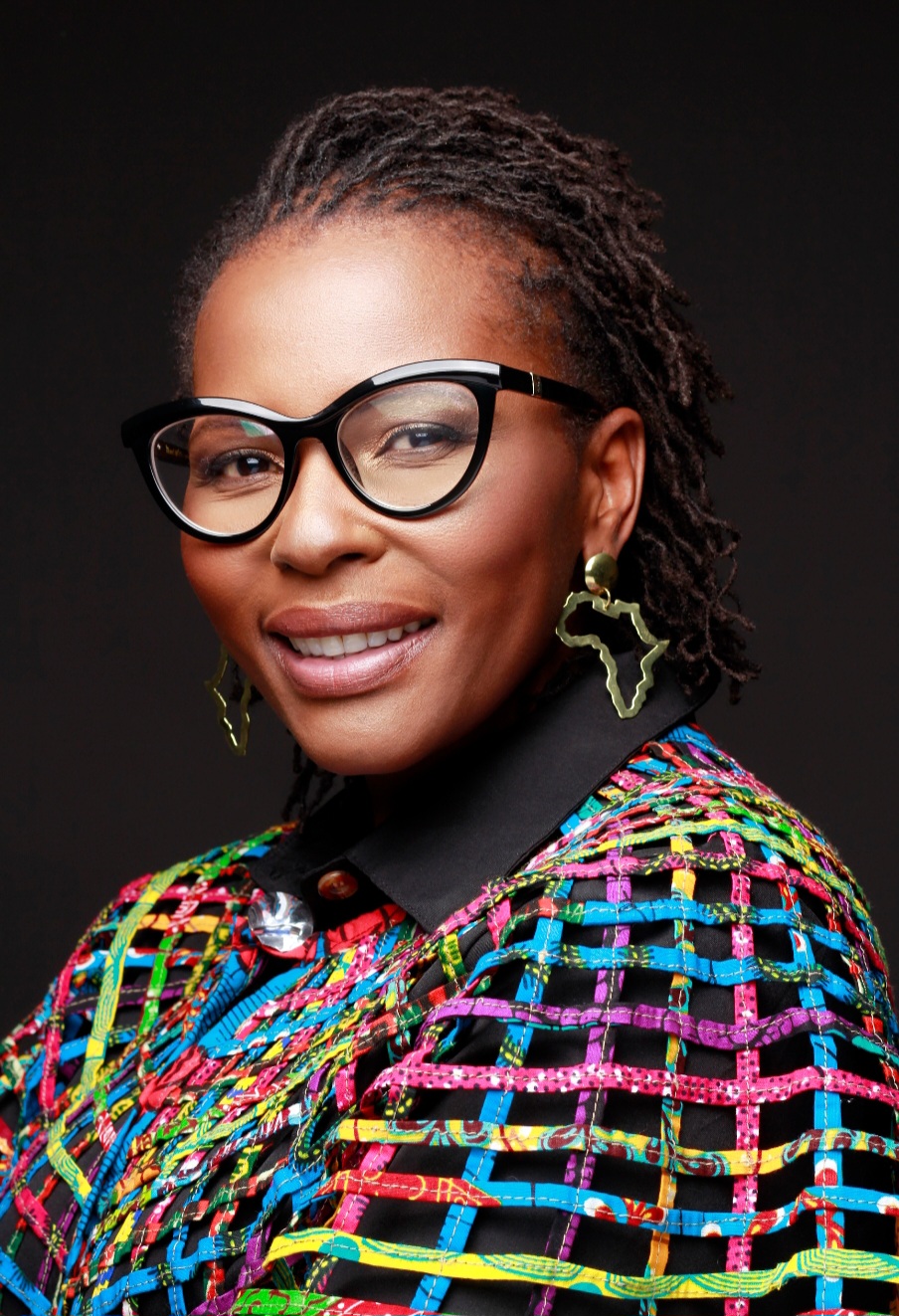
By Moliehi Molekoa
The start of a new year often brings optimism, new strategies, and renewed ambition. However, for the public relations and reputation management industry, the past year ended not only with optimism but also with hard-earned clarity.
2025 was more than a challenging year. It was a reckoning and a stress test for operating models, procurement practices, and, most importantly, the foundation of client–agency partnerships. For the C-suite, this is not solely an agency issue.
The year revealed a more fundamental challenge: a partnership problem that, if left unaddressed, can easily erode the very reputations, trust, and resilience agencies are hired to protect. What has emerged is not disillusionment, but the need for a clearer understanding of where established ways of working no longer reflect the reality they are meant to support.
The uncomfortable truth we keep avoiding
Public relations agencies are businesses, not cost centres or expandable resources. They are not informal extensions of internal teams, lacking the protection, stability, or benefits those teams receive. They are businesses.
Yet, across markets, agencies are often expected to operate under conditions that would raise immediate concerns in any boardroom:
-
Unclear and constantly shifting scope
-
Short-term contracts paired with long-term expectations
-
Sixty-, ninety-, even 120-day payment terms
-
Procurement-led pricing pressure divorced from delivery realities
-
Pitch processes that consume months of senior talent time, often with no feedback, timelines, or accountability
If these conditions would concern you within your own organisation, they should also concern you regarding the partner responsible for your reputation.
Growth on paper, pressure in practice
On the surface, the industry appears healthy. Global market valuations continue to rise. Demand for reputation management, stakeholder engagement, crisis preparedness, and strategic counsel has never been higher.
However, beneath this top-line growth lies the uncomfortable reality: fewer than half of agencies expect meaningful profit growth, even as workloads increase and expectations rise.
This disconnect is significant. It indicates an industry being asked to deliver more across additional platforms, at greater speed, with deeper insight, and with higher risk exposure, all while absorbing increased commercial uncertainty.
For African agencies in particular, this pressure is intensified by factors such as volatile currencies, rising talent costs, fragile data infrastructure, and procurement models adopted from economies with fundamentally different conditions. This is not a complaint. It is reality.
This pressure is not one-sided. Many clients face constraints ranging from procurement mandates and short-term cost controls to internal capacity gaps, which increasingly shift responsibility outward. But pressure transfer is not the same as partnership, and left unmanaged, it creates long-term risk for both parties.
The pitching problem no one wants to own
Agencies are not anti-competition. Pitches sharpen thinking and drive excellence. What agencies increasingly challenge is how pitching is done.
Across markets, agencies participate in dozens of pitches each year, with success rates well below 20%. Senior leaders frequently invest unpaid hours, often with limited information, tight timelines, and evaluation criteria that prioritise cost over value.
And then, too often, dead silence, no feedback, no communication about delays, and a lack of decency in providing detailed feedback on the decision drivers.
In any other supplier relationship, this would not meet basic governance standards. In a profession built on intellectual capital, it suggests that expertise is undervalued.
This is also where independent pitch consultants become increasingly important and valuable if clients choose this route to help facilitate their pitch process. Their role in the process is not to advocate for agencies but to act as neutral custodians of fairness, realism, and governance. When used well, they help clients align ambition with timelines, scope, and budget, and ensure transparency and feedback that ultimately lead to better decision-making.
“More for less” is not a strategy
A particularly damaging expectation is the belief that agencies can sustainably deliver enterprise-level outcomes on limited budgets, often while dedicating nearly full-time senior resources. This is not efficiency. It is misalignment.
No executive would expect a business unit to thrive while under-resourced, overexposed, and cash-constrained. Yet agencies are often required to operate under these conditions while remaining accountable for outcomes that affect market confidence, stakeholder trust, and brand equity.
Here is a friendly reminder: reputation management is not a commodity. It is risk management.
It is value creation. It also requires investment that matches its significance.
A necessary reset
As leadership teams plan for growth, resilience, and relevance, there is both an opportunity and a responsibility to reset how agency partnerships are structured.
That reset looks like:
-
Contracts that balance flexibility and sustainability
-
Payment terms that reflect mutual dependency
-
Pitch processes that respect time, talent, and transparency for all parties
-
Scopes that align ambition with available budgets
-
Relationships based on professional parity rather than power imbalance
This reset also requires discipline on the agency side – clearer articulation of value, sharper scoping, and greater transparency about how senior expertise is deployed. Partnership is not protectionism; it is mutual accountability.
The Leadership Question That Matters
The question for the C-suite is quite simple:
If your agency mirrored your internal standards of governance, fairness, and accountability, would you still be comfortable with how the relationship is structured?
If the answer is no, then change is not only necessary but also strategic. Because strong brands are built on strong partnerships. Strong partnerships endure only when both sides are recognised, respected, and resourced as businesses in their own right.
The agencies that succeed and the brands that truly thrive will be those that recognise this early and act deliberately.
Moliehi Molekoa is the Managing Director of Magna Carta Reputation Management Consultants and PRISA Board Member
Feature/OPED
Directing the Dual Workforce in the Age of AI Agents

By Linda Saunders
We will be the last generation to work with all-human workforces. This is not a provocative soundbite but a statement of fact, one that signals a fundamental shift in how organisations operate and what leadership now demands. The challenge facing today’s leaders is not simply adopting new technology but architecting an entirely new operating model where humans and autonomous AI agents work in concert.
According to Salesforce 2025 CEO research, 99% of CEOs say they are prepared to integrate digital labor into their business, yet only 51% feel fully prepared to do so. This gap between awareness and readiness reveals the central tension of this moment: we recognise the transformation ahead but lack established frameworks for navigating it. The question is no longer whether AI agents will reshape work, but whether leaders can develop the new capabilities required to direct this dual workforce effectively.
The scale of change is already visible in the data. According to the latest CIO trends, AI implementation has surged 282% year over year, jumping from 11% to 42% of organisations deploying AI at scale. Meanwhile, the IDC estimates that digital labour will generate a global economic impact of $13 trillion by 2030, with their research suggesting that agentic AI tools could enhance productivity by taking on the equivalent of almost 23% of a full-time employee’s weekly workload.
With the majority of CEOs acknowledging that digital labor will transform their company structure entirely, and that implementing agents is critical for competing in today’s economic climate, the reality is that transformation is not coming, it’s already here, and it requires a fundamental change to the way we approach leadership.
The Director of the Dual Workforce
Traditional management models, built on hierarchies of human workers executing tasks under supervision, were designed for a different era. What is needed now might be called the Director of the dual workforce, a leader whose mandate is not to execute every task but to architect and oversee effective collaboration between human teams and autonomous digital labor. This role is governed by five core principles that define how AI agents should be structured, deployed and optimised within organisations.
Structure forms the foundation. Just as organisational charts define human roles and reporting lines, leaders must design clear frameworks for AI agents, defining their scope, establishing mandates and setting boundaries for their operation. This is particularly challenging given that the average enterprise uses 897 applications, only 29% of which are connected. Leaders must create coherent structures within fragmented technology landscapes as a strong data foundation is the most critical factor for successful AI implementation. Without proper structure, agents risk operating in silos or creating new inefficiencies rather than resolving existing ones.
Oversight translates structure into accountability. Leaders must establish clear performance metrics and conduct regular reviews of their digital workforce, applying the same rigour they bring to managing human teams. This becomes essential as organisations scale beyond pilot projects and we’ve seen a significant increase in companies moving from pilot to production, indicating that the shift from experimentation to operational deployment is accelerating. It’s also clear that structured approaches to agent deployment can deliver return on investment substantially faster than do-it-yourself methods whilst reducing costs, but only when proper oversight mechanisms are in place.
To ensure agents learn from trusted data and behave as intended before deployment, training and testing is required. Leaders bear responsibility for curating the knowledge base agents access and rigorously testing their behaviour before release. This addresses a critical challenge: leaders believe their most valuable insights are trapped in roughly 19% of company data that remains siloed. The quality of training directly impacts performance and properly trained agents can achieve 75% higher accuracy than those deployed without rigorous preparation.
Additionally, strategy determines where and how to deploy agent resources for competitive advantage. This requires identifying high-value, repetitive or complex processes where AI augmentation drives meaningful impact. Early adoption patterns reveal clear trends: according to the Salesforce Agentic Enterprise Index tracking the first half of 2025, organisations saw a 119% increase in agents created, with top use cases spanning sales, service and internal business operations. The same research shows employees are engaging with AI agents 65% more frequently, and conversations are running 35% longer, suggesting that strategic deployment is finding genuine utility rather than novelty value.
The critical role of observability
The fifth principle, to observe and track, has emerged as perhaps the most critical enabler for scaling AI deployments safely. This requires real-time visibility into agent behaviour and performance, creating transparency that builds trust and enables rapid optimisation.
Given the surge in AI implementation, leaders need unified views of their AI operations to scale securely. Success hinges on seamless integration into core systems rather than isolated projects, and agentic AI demands new skills, with the top three in demand being leadership, storytelling and change management. The ability to observe and track agent performance is what makes this integration possible, allowing leaders to identify issues quickly, demonstrate accountability and make informed decisions about scaling.
The shift towards dual workforce management is already reshaping executive priorities and relationships. CIOs now partner more closely with CEOs than any other C-suite peer, reflecting their changing and central role in technology-driven strategy. Meanwhile, recent CHRO research found that 80% of Chief Human Resources Officers believe that within five years, most workforces will combine humans and AI agents, with expected productivity gains of 30% and labour cost reductions of 19%. The financial perspective has also clearly shifted dramatically, with CFOs moving away from cautious experimentation toward actively integrating AI agents into how they assess value, measure return on investment, and define broader business outcomes.
Leading the transition
The current generation of leaders are the crucial architects who must design and lead this transition. The role of director of the dual workforce is not aspirational but necessary, grounded in principles that govern effective agent deployment. Success requires moving beyond viewing AI as a technical initiative to understanding it as an organisational transformation that touches every aspect of operations, from workflow design to performance management to strategic planning.
This transformation also demands new capabilities from leaders themselves. The skills that defined effective management in all-human workforces remain important but are no longer sufficient. Leaders must develop fluency in understanding agent capabilities and limitations, learn to design workflows that optimally divide labor between humans and machines, and cultivate the ability to measure and optimise performance across both types of workers. They must also navigate the human dimensions of this transition, helping employees understand how their roles evolve, ensuring that the benefits of productivity gains are distributed fairly, and maintaining organisational cultures that value human judgement and creativity even as routine tasks migrate to digital labor.
The responsibility to direct what comes next, to architect systems where human creativity, judgement and relationship-building combine with the scalability, consistency and analytical power of AI agents, rests with today’s leaders. The organisations that thrive will be those whose directors embrace this mandate, developing the structures, oversight mechanisms, training protocols, strategic frameworks and observability systems that allow dual workforces to deliver on their considerable promise.
Feature/OPED
Energy Transition: Will Nigeria Go Green Only To Go Broke?
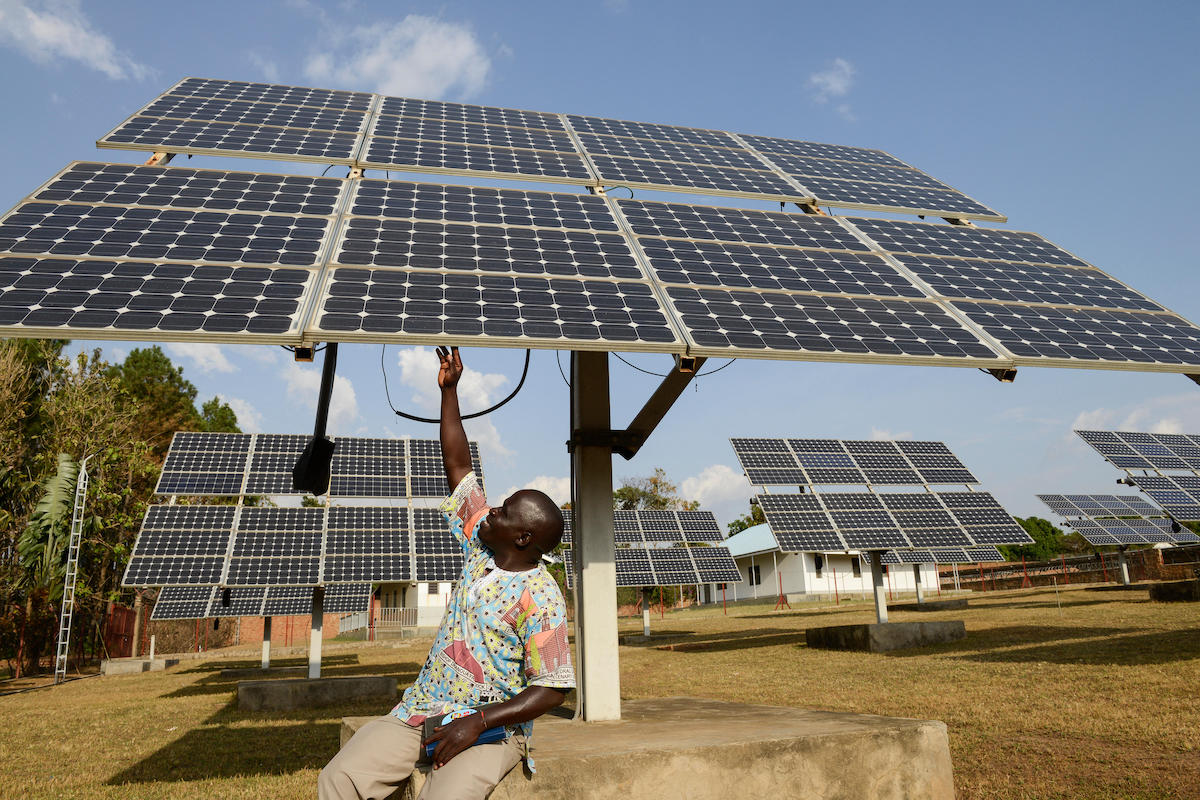
By Isah Kamisu Madachi
Nigeria has been preparing for a sustainable future beyond oil for years. At COP26 in the UK, the country announced its commitment to carbon neutrality by 2060. Shortly after the event, the Energy Transition Plan (ETP) was unveiled, the Climate Change Act 2021 was passed and signed into law, and an Energy Transition Office was created for the implementations. These were impressive efforts, and they truly speak highly of the seriousness of the federal government. However, beyond climate change stress, there’s an angle to look at this issue, because in practice, an important question in this conversation that needs to be answered is: how exactly will Nigeria’s economy be when oil finally stops paying the bills?
For decades, oil has been the backbone of public finance in Nigeria. It funds budgets, stabilises foreign exchange, supports states through monthly FAAC allocations, and quietly props up the naira. Even when production falls or prices fluctuate, the optimism has always been that oil will somehow carry Nigeria through the storms. It is even boldly acknowledged in the available policy document of the energy transition plan that global fossil fuel demand will decline. But it does not fully confront what that decline means for a country of roughly 230 million people whose economy is still largely structured around oil dollars.
Energy transition is often discussed from the angle of the emissions issue alone. However, for Nigeria, it is first an economic survival issue. Evidence already confirms that oil now contributes less to GDP than it used to, but it remains central to government revenue and foreign exchange earnings. When oil revenues drop, the effects are felt in budget shortfalls, rising debt, currency pressure, and inflation. Nigerians experienced this reality during periods of oil price crashes, from 2014 to the pandemic shock.
The Energy Transition Plan promises to lift 100 million Nigerians out of poverty, expand energy access, preserve jobs, and lead a fair transition in Africa. These are necessary goals for a future beyond fossil fuels. But this bold ambition alone does not replace revenue. If oil earnings shrink faster than alternative sources grow, the transition risks deepening fiscal stress rather than easing it. Without a clear post-oil revenue strategy tied directly to the transition, Nigeria may end up cleaner with the net-zero goals achieved, but poorer.
Jobs need to be considered, too. The plan recognises that employment in the oil sector will decline over time. What should be taken into consideration is where large-scale employment will come from. Renewable energy, of course, creates jobs, but not automatically, and not at the scale oil-related value chains once supported, unless deliberately designed to do so. Solar panels assembled abroad and imported into Nigeria will hardly replace lost oil jobs. Local manufacturing, large-scale skills development, and industrial policy are what make the difference, yet these remain weak links in Nigeria’s transition conversation.
The same problem is glaringly present in public finance. States that depend heavily on oil-derived allocations are already struggling to pay salaries, though with improvement after fuel subsidy removal. A future with less oil revenue will only worsen this unless states are supported to proactively build formidably productive local economies. Energy transition, if disconnected from economic diversification, could unintentionally widen inequality between regions and states and also exacerbate dependence on internal and external borrowing.
There is also the foreign exchange question. Oil export is still Nigeria’s main source of dollars. As global demand shifts and revenues decline, pressure on the naira will likely intensify unless non-oil exports rise in a dramatically meaningful way. However, Nigeria’s non-oil export base remains very narrow. Agriculture, solid minerals, manufacturing, and services are often mentioned, but rarely aligned with the Energy Transition Plan in a concrete and measurable way.
The core issue here is not about Nigeria wanting to transition, but that it wants to transition without rethinking how the economy earns, spends, and survives. Clean energy will not automatically fix public finance, stabilise the currency, or replace lost oil income and jobs. Those outcomes require deliberate and strategic economic choices that go beyond power generation and meeting emissions targets. Otherwise, the country will be walking into a future where oil is no longer dependable, yet nothing else has been built strongly enough to pay the bills as oil did.
Isah Kamisu Madachi is a policy analyst and development practitioner. He writes from Abuja and can be reached via [email protected]
-

 Feature/OPED6 years ago
Feature/OPED6 years agoDavos was Different this year
-
Travel/Tourism9 years ago
Lagos Seals Western Lodge Hotel In Ikorodu
-

 Showbiz3 years ago
Showbiz3 years agoEstranged Lover Releases Videos of Empress Njamah Bathing
-

 Banking8 years ago
Banking8 years agoSort Codes of GTBank Branches in Nigeria
-

 Economy3 years ago
Economy3 years agoSubsidy Removal: CNG at N130 Per Litre Cheaper Than Petrol—IPMAN
-

 Banking3 years ago
Banking3 years agoSort Codes of UBA Branches in Nigeria
-

 Banking3 years ago
Banking3 years agoFirst Bank Announces Planned Downtime
-

 Sports3 years ago
Sports3 years agoHighest Paid Nigerian Footballer – How Much Do Nigerian Footballers Earn



